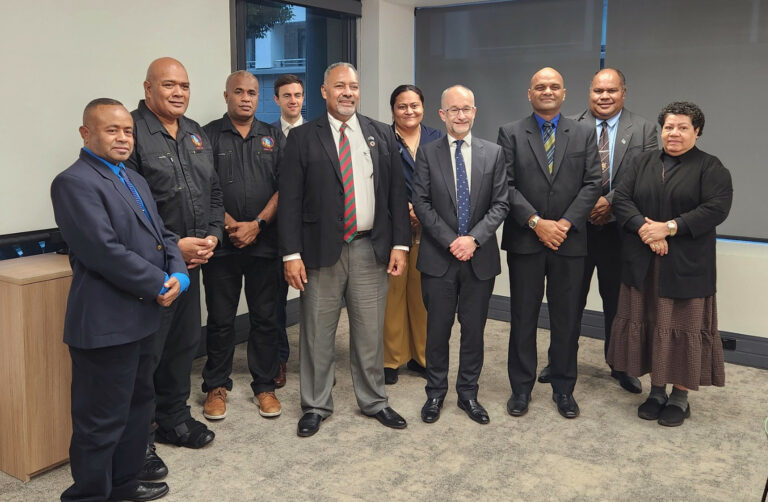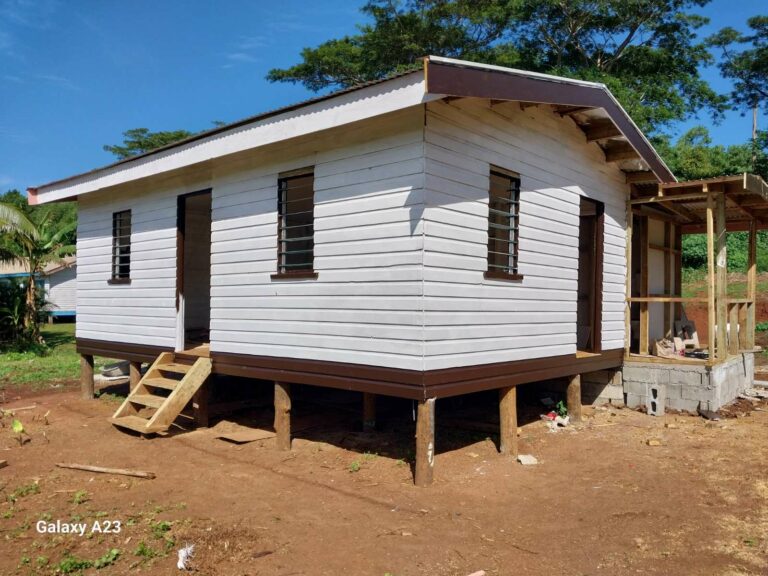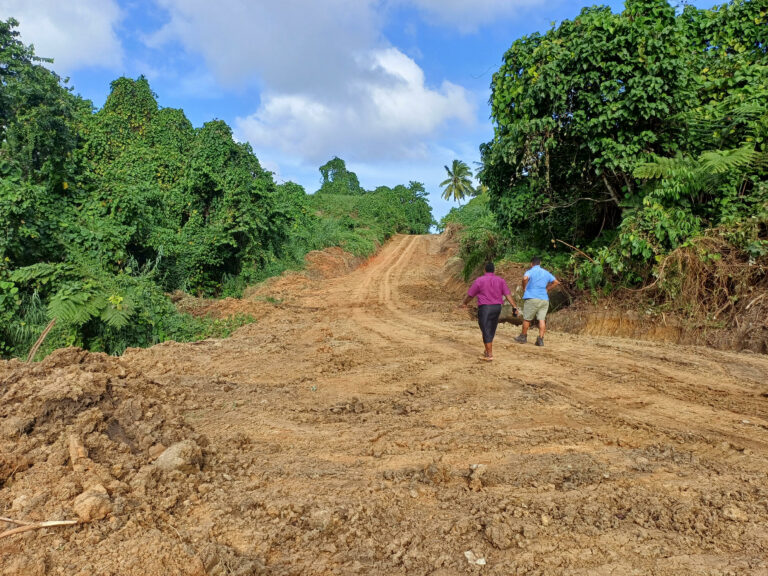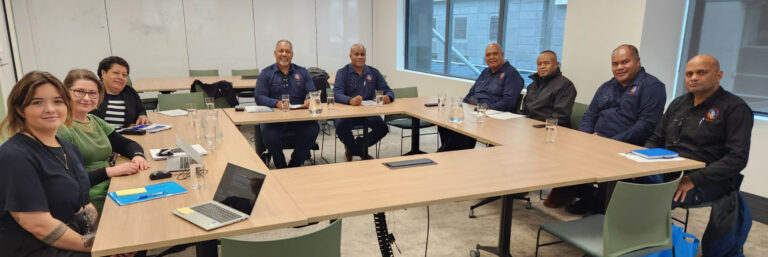
Caption: Minister for Rural and Maritime Development and Disaster Management Hon. Sakiasi Ditoka and Permanent Representative of the United Nations Population Fund (UNDP) Mr. Iori Kato with senior officials of the Fiji Government and representatives from other UN agencies, civil society organisations, and key stakeholders participating in the 1st National Workshop on the Multihazard Early Warning System for Fiji in Suva last week.
SUVA – The ‘Advancing Early Warning for All (EW4A) Project creates new opportunities to ensure every person in Fiji is protected by early warning systems, says the Minister for Rural and Maritime Development and Disaster Management, Hon. Sakiasi Ditoka.
Speaking during the 1st National Workshop on the Multihazard Early Warning System for Fiji in Suva last week, Hon. Ditoka said Fiji’s involvement in initiatives like the Early Warning for All (EW4All) demonstrated our dedication to global efforts in disaster risk reduction.
“Fiji is situated in a region prone to various hazards, including tropical cyclones, earthquakes, tsunamis, and flooding. These events, when left unaddressed, can have devastating consequences, leading to loss of lives, damage to infrastructure, and economic setbacks. A robust multihazard early warning system is our shield against such adversities, allowing us to prepare, respond, and mitigate the impact of these hazards. By establishing a multihazard early warning system, we align ourselves with best practices, enhance our resilience, and contribute to the collective well-being of the international community. As we forge ahead, it’s critical to emphasize the role of community engagement in enhancing the efficacy of early warning systems. The involvement of local communities, particularly those most vulnerable to disasters, is not just beneficial but essential,” Hon. Ditoka said.
“We must ensure that early warning messages are disseminated in ways that are accessible and understandable to all, taking into account diverse needs, including those of persons with disabilities and different gender groups. This approach not only ensures inclusivity but also fosters a sense of ownership and empowerment among the communities we serve. Incorporating local and indigenous knowledge systems into our early warning strategies is another cornerstone of our approach. The wisdom and experience embedded within our communities honed over generations, provide invaluable insights into local hazard patterns and effective coping mechanisms. By integrating this knowledge with modern scientific methods, we can develop more comprehensive and context-specific early warning systems.”
While the effects of climate change are becoming increasingly evident, the intensification of extreme events demands a sophisticated and integrated approach to early warnings.
This, he said should be a system that can adapt to the evolving climate scenario and provide timely, accurate information is not just a necessity but a strategic imperative for Fiji.
“In addition to safeguarding lives and property, a multihazard early warning system is instrumental in preserving our socio-economic development. By receiving advance notice of potential hazards, we can implement preventive measures, evacuate vulnerable areas, and secure critical infrastructure. This proactive approach not only minimises the immediate impact of disasters but also ensures quicker recovery and reduces the long-term socio-economic consequences,” he added.
The Early Warning for All (EW4All) initiative was introduced by the United Nations (UN) Secretary-General in 2022. Fiji is one of the inaugural seven countries chosen globally to lead this initiative in the Pacific.
The two-day workshop is organised by the National Disaster Management Office (NDMO), in conjunction with the United Nations Office for Disaster Risk Reduction, and the United Nations Development Programme (UNDP).
Today’s programme is focused on stocktaking on what other agencies have on multi-hazard early-warning systems. Information gathered from the different sectors at today’s session will guide the development of the roadmap on multi-hazard early-warning systems that Fiji will develop under the Coalition for Disaster Resilient Infrastructure (CDRI).
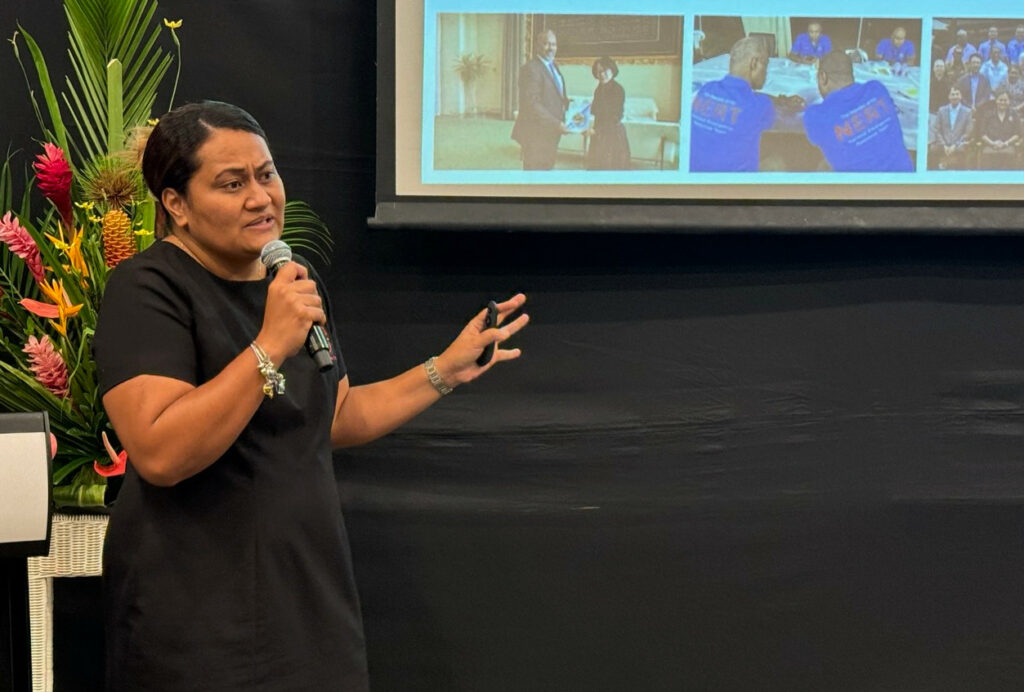
Caption: NDMO Director Ms. Vasiti Soko provides an overview about the disaster management framework in Fiji during the 1st National Workshop on the Multihazard Early Warning System for Fiji in Suva last week.
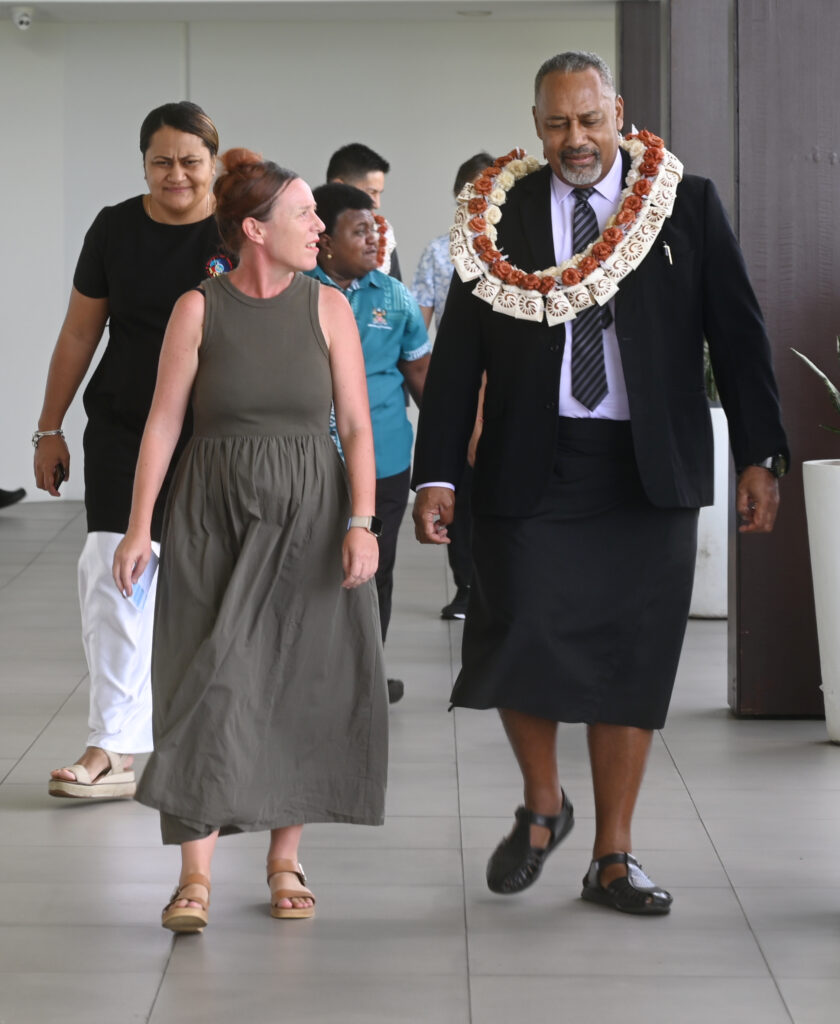
Caption: Minister for Rural and Maritime Development and Disaster Management Hon. Sakiasi Ditoka, Director NDMO Ms. Vasiti Soko, and Ms. Gabrielle Emery, Head of the UNDRR Pacific Subregional Office at the 1st National Workshop on the Multihazard Early Warning System for Fiji in Suva last week.


